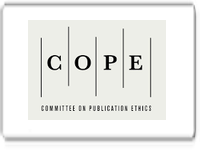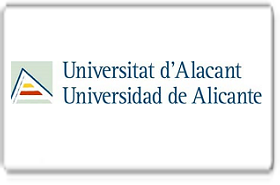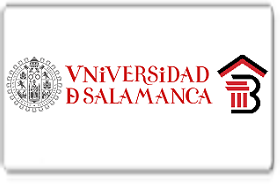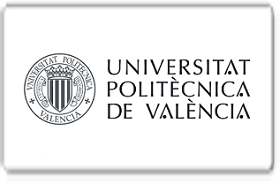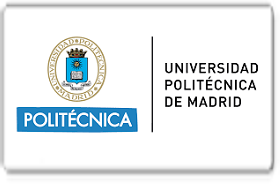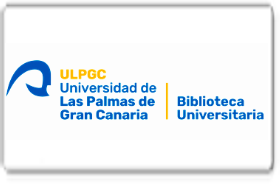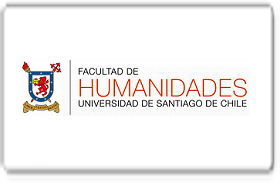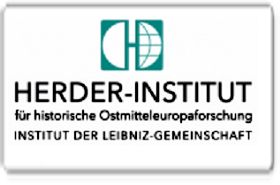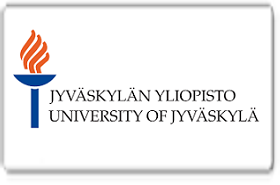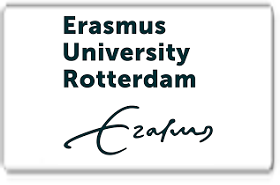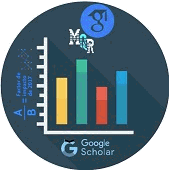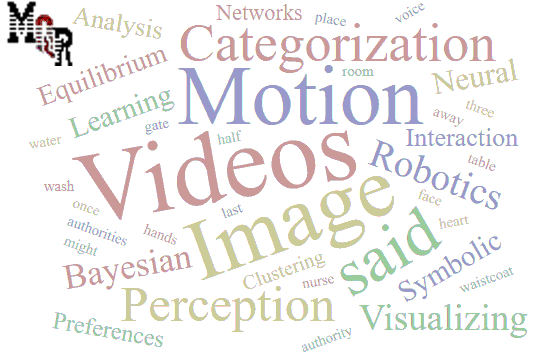Impacto de las evaluaciones didácticas digitales, en el aprendizaje cooperativo en estudiantes de nivel superior
DOI:
https://doi.org/10.56048/MQR20225.8.4.2024.517-548Palabras clave:
Evaluaciones didácticas digitales; Aprendizaje cooperativo; Tecnología educativa; Comprensión de contenidos; Motivación estudiantilResumen
Este estudio investigó el impacto de las evaluaciones didácticas digitales en el aprendizaje cooperativo entre estudiantes de nivel superior, centrándose en cómo estas herramientas facilitan la comunicación y colaboración dentro de equipos académicos. El contexto actual de la educación exige explorar cómo las tecnologías digitales pueden mejorar la dinámica educativa y fomentar habilidades clave entre los estudiantes. El objetivo fue evaluar cómo las evaluaciones didácticas digitales influyen en el aprendizaje cooperativo, específicamente en términos de mejora de la comprensión de contenidos, equidad en la evaluación y motivación para la participación activa. Se utilizó un enfoque mixto que incluyó encuestas cuantitativas a través de escalas Likert y entrevistas cualitativas a estudiantes, buscando capturar tanto percepciones cuantitativas como experiencias personales detalladas sobre el uso de estas herramientas en entornos académicos. Los resultados indicaron un impacto positivo significativo de las evaluaciones didácticas digitales en el aprendizaje cooperativo, con una mejora notable en la comprensión de temas y un aumento en la motivación para participar activamente en actividades académicas colaborativas. Sin embargo, también se identificaron desafíos relacionados con la equidad en la evaluación y la necesidad de mejorar la infraestructura tecnológica para optimizar el uso de estas herramientas educativas. En conclusión, este estudio destaca la importancia de integrar estrategias innovadoras basadas en tecnología para fortalecer el aprendizaje cooperativo en entornos educativos. A pesar de los desafíos identificados, las evaluaciones didácticas digitales representan una oportunidad significativa para mejorar la calidad educativa y preparar a los estudiantes para enfrentar los requerimientos de un mundo laboral cada vez más digitalizado y colaborativo.
Descargas
Métricas
Cited
DOI: 10.56048![]()
Citas
Alammary, A. (2021). Designing blended learning models: Frameworks and guidelines. Journal of Educational Technology & Society, 24(2), 165-178.
Alharbi, H. A., & Drew, S. (2021). Digital feedback for learning and development: Exploring the perceptions and experiences of students in higher education. International Journal of Educational Technology in Higher Education, 18(1), 1-16.
Bertucci, A., Conte, S., Johnson, D. W., & Johnson, R. T. (2020). The impact of group processing on achievement in cooperative learning groups in university teaching. Educational Psychology Review, 32(3), 725-748.
Black, P., & Wiliam, D. (2009). Developing the theory of formative assessment. Educational Assessment, Evaluation and Accountability, 21(1), 5-31.
Bond, M., Buntins, K., Bedenlier, S., Zawacki-Richter, O., & Kerres, M. (2020). Mapping research in student engagement and educational technology in higher education: A systematic evidence map. International Journal of Educational Technology in Higher Education, 17(1), 1-30.
Bond, M., Marín, V. I., Dolch, C., Bedenlier, S., & Zawacki-Richter, O. (2021). Digital transformation in German higher education: Student and teacher perceptions and readiness. Journal of Computer Assisted Learning, 37(6), 1513-1527.
Chang, Y. S., Hsu, Y. C., & Wu, K. C. (2022). The effects of instant feedback on student learning outcomes in digital assessments. Journal of Educational Technology & Society, 25(1), 51-63.
Chen, X., Zou, D., & Xie, H. (2022). Personalizing learning with digital tools: The impact on student engagement and achievement. Educational Technology Research and Development, 70(3), 571-589.
Dabbagh, N., Bass, R., & Michael, J. (2021). Exploring the role of digital tools in fostering collaboration in higher education. Computers & Education, 168, 104201.
Dillenbourg, P., Järvelä, S., & Fischer, F. (2022). The design of technology-enhanced learning environments. Routledge.
García-Martín, J., & García-Sánchez, J. N. (2020). The effectiveness of four instructional approaches used in a cooperative learning context. Journal of Educational Psychology, 112(5), 1125-1136.
Gikandi, J. W., & Morrow, D. (2020). Promoting feedback dialogue through technology-enhanced assessment for self-regulated learning in higher education. Assessment & Evaluation in Higher Education, 45(1), 16-30.
Gillies, R. M. (2021). Promoting academic achievement and social skills through cooperative learning. Educational Psychology Review, 33(2), 537-553.
González, C., Martínez, J., & Sánchez, L. (2019). Challenges in implementing digital platforms for educational assessments: A mixed-method study. Journal of Digital Learning in Higher Education, 12(2), 45-58.
Hattie, J., & Zierer, K. (2020). 10 Mindframes for Visible Learning: Teaching for Success. Routledge.
Hennessy, S., Deaney, R., & Ruthven, K. (2022). Developing teachers' digital literacy: A review of training programs and their impact on practice. Journal of Digital Learning in Teacher Education, 38(1), 10-27.
Hew, K. F., & Cheung, W. S. (2020). Implementing collaborative learning in online courses: The importance of group dynamics. Journal of Computer Assisted Learning, 36(5), 712-726.
Hrastinski, S. (2021). Designing courses with digital cooperative learning. Education and Information Technologies, 26(3), 3209-3225.
Hsu, H. Y., Ching, Y. H., & Grabowski, B. (2020). Examining students' perceptions of digital assessment tools: Usability, accessibility, and satisfaction. Computers in Human Behavior, 104, 106-115.
Hwang, G. J., Sung, H. Y., Chang, S. C., & Huang, I. (2020). A formative assessment-based mobile learning approach to improving the learning attitudes and achievements of students. Educational Technology & Society, 23(4), 111-124.
Johnson, D. W., Johnson, R. T., & Holubec, E. J. (2021). Cooperation in the Classroom. Interaction Book Company.
Johnson, D. W., Johnson, R. T., & Smith, K. A. (2022). Cooperative learning: Improving university instruction by basing practice on validated theory. Journal on Excellence in College Teaching, 33(3), 23-34.
Johnson, D. W., Johnson, R. T., & Smith, K. A. (2023). Cooperative learning: Improving university instruction by basing practice on validated theory. Journal on Excellence in College Teaching, 34(1), 45-60.
Jones, B., & Johnson, D. (2018). Improving digital assessments: A student-centered approach to learning and evaluation. International Journal of Educational Research, 34(3), 89-102.
Kim, D., Park, Y., & Lee, J. (2021). The effect of adaptive learning on student achievement: Evidence from a large-scale experiment. Educational Technology Research and Development, 69(5), 2217-2240.
Kimmons, R., & Hall, C. (2020). Innovation in digital assessment: Exploring new practices and tools. Computers & Education, 148, 103773.
Lai, K. W., & Bower, M. (2019). Technology-enhanced learning and collaborative problem-solving skills: A review of evidence. Computers & Education, 144, 103706.
Lai, Y. C., Bower, M., & de Freitas, S. (2021). Collaborative learning in virtual environments: Impact on learning outcomes and group satisfaction. Computers & Education, 168, 104204.
Liu, M., Lee, K., & Wang, X. (2021). Personalization in digital assessments: Students' attitudes and academic outcomes. Educational Technology Research and Development, 69(4), 245-265.
Nicol, D., & Macfarlane-Dick, D. (2020). Formative assessment and self-regulated learning: A model and seven principles of good feedback practice. Studies in Higher Education, 45(2), 199-218.
Peñalosa, J., & García, J. M. (2021). Digital tools and student engagement: Enhancing the learning experience in higher education. Technology, Pedagogy and Education, 30(2), 147-160.
Perrotta, C., & Williamson, B. (2020). The social and political foundations of educational data science: Critiquing AI-driven ed-tech. Learning, Media and Technology, 45(3), 291-304.
Redecker, C., & Johannessen, Ø. (2020). The future of learning: Challenges and opportunities in a digital world. European Journal of Education, 55(2), 185-198.
Selwyn, N. (2021). Education and technology: Key issues and debates. Bloomsbury Academic.
Shute, V. J. (2020). Focus on formative feedback. Review of Educational Research, 78(1), 153-189.
Slavin, R. E. (2021). Cooperative Learning: Theory, Research, and Practice. Allyn & Bacon.
Smith, A., Roberts, M., & Davis, P. (2020). Digital assessments and student performance: A review of emerging trends in higher education. Journal of Educational Technology and Learning, 15(4), 22-38.
Tsai, C. C., Liu, T. C., & Chang, K. E. (2023). Privacy concerns and students' acceptance of digital assessment tools: A longitudinal study. Journal of Educational Computing Research, 61(2), 291-310.
Van der Kleij, F. M., Feskens, R. C., & Eggen, T. J. (2021). Effects of feedback in a computer-based learning environment on students’ learning outcomes: A meta-analysis. Educational Psychology Review, 33(3), 731-755.
Volet, S., & Mansfield, C. (2021). Student collaboration and performance in group projects: A longitudinal study. Educational Psychology, 41(7), 930-948.
Zhao, Y., Wang, L., & Li, H. (2021). The effects of digital learning on students' academic performance: A meta-analysis. Educational Technology & Society, 24(3), 1-12.
Publicado
Cómo citar
Número
Sección
Categorías
Licencia

Esta obra está bajo una licencia internacional Creative Commons Atribución 4.0.
Los autores se comprometen a respetar la información académica de otros autores, y a ceder los derechos de autor a la Revista MQRInvestigar, para que el artículo pueda ser editado, publicado y distribuido. El contenido de los artículos científicos y de las publicaciones que aparecen en la revista es responsabilidad exclusiva de sus autores. La distribución de los artículos publicados se realiza bajo una licencia 


















